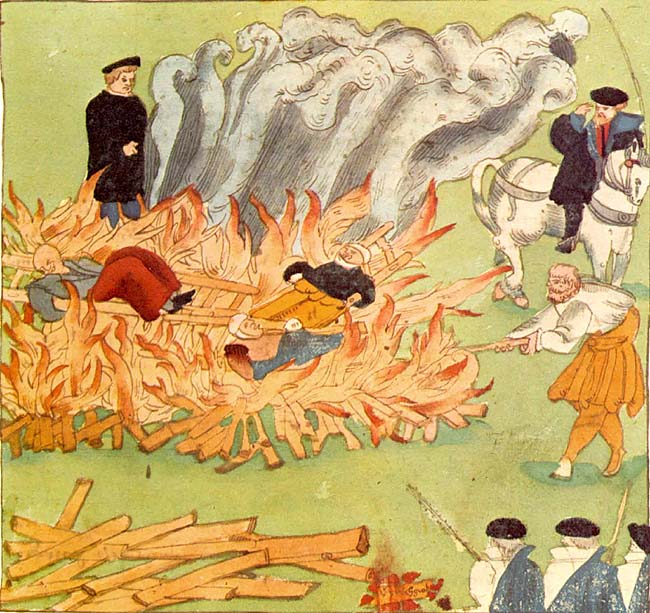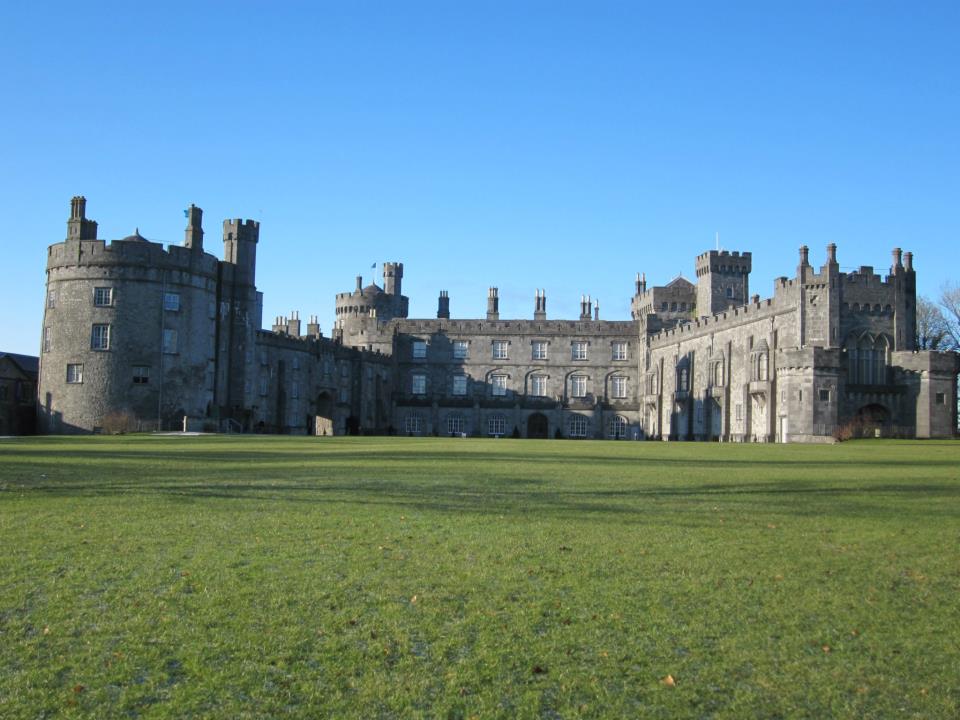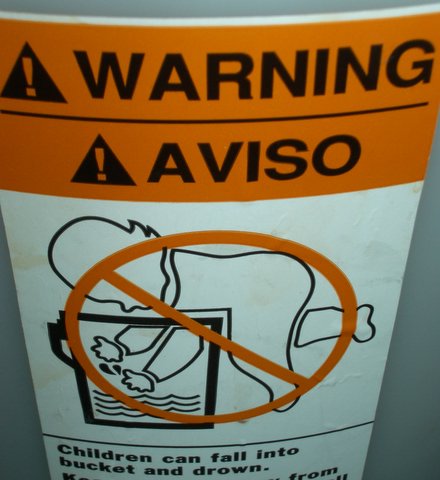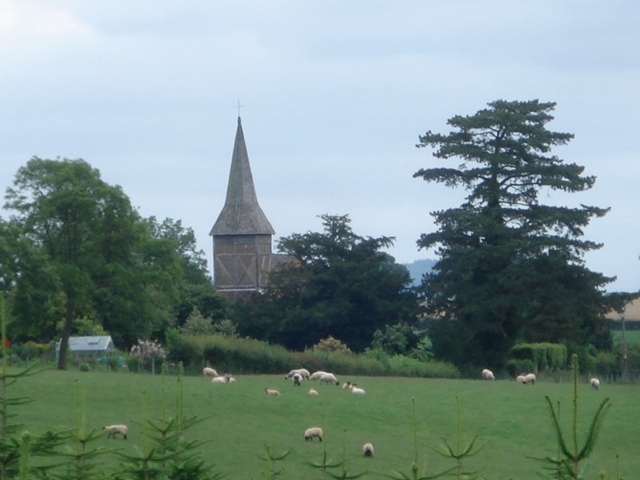|
William De Rodyard
William de Rodyard, de Rodiard, or de Rudyard (c.1275- c. 1349) was an English-born judge and cleric in fourteenth-century Ireland. He held office as Chief Justice of the Irish Common Pleas; he was also Dean of St Patrick's Cathedral, and briefly Deputy Lord Treasurer of Ireland. He was the first Chancellor of the Medieval University of Dublin (not to be confused with Trinity College Dublin, which was a much later foundation).Gallagher, Niav "Rodyard (Rudyard), William de" ''Cambridge Dictionary of Irish Biography'' 2009 Career Little is known of his background or his early life, although he was probably born in Rudyard, Staffordshire, and took his name from the village. A few official records give his first name as John. The National Archives ''Officers in Ireland anno primo R. Edward III and their yearly fees'' He was in holy orders, and must have been a university graduate since he was often termed "Magister (Master)", a title which was given at the time only to those wit ... [...More Info...] [...Related Items...] OR: [Wikipedia] [Google] [Baidu] |
Judge
A judge is a person who presides over court proceedings, either alone or as a part of a panel of judges. A judge hears all the witnesses and any other evidence presented by the barristers or solicitors of the case, assesses the credibility and arguments of the parties, and then issues a ruling in the case based on their interpretation of the law and their own personal judgment. A judge is expected to conduct the trial impartially and, typically, in an open court. The powers, functions, method of appointment, discipline, and training of judges vary widely across different jurisdictions. In some jurisdictions, the judge's powers may be shared with a jury. In inquisitorial systems of criminal investigation, a judge might also be an examining magistrate. The presiding judge ensures that all court proceedings are lawful and orderly. Powers and functions The ultimate task of a judge is to settle a legal dispute in a final and publicly lawful manner in agreement with substantial p ... [...More Info...] [...Related Items...] OR: [Wikipedia] [Google] [Baidu] |
Bruce Campaign In Ireland
The Bruce campaign was a three-year military campaign in Ireland by Edward Bruce, brother of the Scottish king Robert the Bruce. It lasted from his landing at Larne in 1315 to his defeat and death in 1318 at the Battle of Faughart in County Louth. It was part of the First War of Scottish Independence and the conflict between the Irish, Scoto-Normans, and the Hiberno-Normans. After his victory at the Battle of Bannockburn, Robert the Bruce decided to expand his war against the Plantagenet dynasty, by sending an army under his younger brother Edward to invade Ireland. He was also invited by some of the native Irish to send an army to drive out the Hiberno-Norman settlers and in return they would crown his brother High King of Ireland. Another reason for the expedition was that supporters of the exiled House of Balliol had fled to Ireland after fighting at Bannockburn and remained a dangerous threat. These men were led by John MacDougall of Lorn, who was the cousin of John Comyn, ... [...More Info...] [...Related Items...] OR: [Wikipedia] [Google] [Baidu] |
Bail
Bail is a set of pre-trial restrictions that are imposed on a suspect to ensure that they will not hamper the judicial process. Bail is the conditional release of a defendant with the promise to appear in court when required. In some countries, especially the United States, bail usually implies a bail bond, a deposit of money or some form of property to the court by the suspect in return for the release from pre-trial detention. If the suspect does not return to court, the bail is forfeited and the suspect may possibly be brought up on charges of the crime of failure to appear. If the suspect returns to make all their required appearances, bail is returned after the trial is concluded. In other countries, such as the United Kingdom, bail is more likely to consist of a set of restrictions that the suspect will have to abide by for a set period of time. Under this usage, bail can be given both before and after charge. For minor crimes, a defendant may be summoned to court witho ... [...More Info...] [...Related Items...] OR: [Wikipedia] [Google] [Baidu] |
Alice Kyteler
Dame Alice Kyteler (1263 – after 1325) was the first recorded person condemned for witchcraft in Ireland. She fled the country to either England or Flanders, and there is no record of her after her escape from persecution. Her servant Petronilla de Meath (also spelt Petronella) was flogged and burned to death at the stake on 3 November 1324, after being tortured and confessing to the heretical crimes she, Kyteler, and Kyteler's followers were alleged to have committed. Life Kyteler was born in Kyteler's House, in County Kilkenny, Ireland. She was the only child of a Flemish family of merchants settled in Ireland in the mid- to late thirteenth century. She was married four times, to William Outlaw, Adam le Blund, Richard de Valle, and Sir John le Poer. # First husband c.1280–85: William Outlaw, wealthy merchant and moneylender from Kilkenny. Son: William Outlaw, was mayor of Kilkenny in 1305. Daughter: Rose? # Second husband (by 1302): Adam Blund of Callan, moneylender. Had ch ... [...More Info...] [...Related Items...] OR: [Wikipedia] [Google] [Baidu] |
Witch Trials
A witch-hunt, or a witch purge, is a search for people who have been labeled witches or a search for evidence of witchcraft. The classical period of witch-hunts in Early Modern Europe and Colonial America took place in the Early Modern period or about 1450 to 1750, spanning the upheavals of the Reformation and the Thirty Years' War, resulting in an estimated 35,000 to 50,000 executions. The last executions of people convicted as witches in Europe took place in the 18th century. In other regions, like Africa and Asia, contemporary witch-hunts have been reported from sub-Saharan Africa and Papua New Guinea, and official legislation against witchcraft is still found in Saudi Arabia and Cameroon today. In current language, "witch-hunt" metaphorically means an investigation that is usually conducted with much publicity, supposedly to uncover subversive activity, disloyalty, and so on, but with the real purpose of intimidating political opponents. It can also involve elemen ... [...More Info...] [...Related Items...] OR: [Wikipedia] [Google] [Baidu] |
Kilkenny
Kilkenny (). is a city in County Kilkenny, Ireland. It is located in the South-East Region and in the province of Leinster. It is built on both banks of the River Nore. The 2016 census gave the total population of Kilkenny as 26,512. Kilkenny is a tourist destination, and its environs include historic buildings such as Kilkenny Castle, St Canice's Cathedral and round tower, Rothe House, Shee Alms House, Black Abbey, St. Mary's Cathedral, Kilkenny Town Hall, St. Francis Abbey, Grace's Castle, and St. John's Priory. Kilkenny is also known for its craft and design workshops, the Watergate Theatre, public gardens and museums. Annual events include Kilkenny Arts Festival, the Cat Laughs comedy festival and music at the Kilkenny Roots Festival. Kilkenny began with an early 6th-century ecclesiastical foundation within the Kingdom of Ossory. Following the Norman invasion of Ireland, Kilkenny Castle and a series of walls were built to protect the burghers of what became a Norman ... [...More Info...] [...Related Items...] OR: [Wikipedia] [Google] [Baidu] |
Doctor Of Civil Law
Doctor of Civil Law (DCL; la, Legis Civilis Doctor or Juris Civilis Doctor) is a degree offered by some universities, such as the University of Oxford, instead of the more common Doctor of Laws (LLD) degrees. At Oxford, the degree is a higher doctorate usually awarded on the basis of exceptionally insightful and distinctive publications that contain significant and original contributions to the study of law or politics in general. The DCL is senior to all degrees save the Doctor of Divinity which was traditionally the highest degree bestowed by the Universities. The degree of Doctor of Canon Law was replaced by the DCL after the Reformation. The degree of Doctor of Civil Law by Diploma is customarily conferred on foreign Heads of State, as well as on the Chancellor of the University. (The British Sovereign is unable to receive university degrees, since these would theoretically place her under the jurisdiction of the Chancellor of the university. Prior to her accession, the ... [...More Info...] [...Related Items...] OR: [Wikipedia] [Google] [Baidu] |
Avignon
Avignon (, ; ; oc, Avinhon, label=Provençal dialect, Provençal or , ; la, Avenio) is the Prefectures in France, prefecture of the Vaucluse Departments of France, department in the Provence-Alpes-Côte d'Azur Regions of France, region of Southeastern France. Located on the left bank of the river Rhône, the Communes of France, commune had a population of 93,671 as of the census results of 2017, with about 16,000 (estimate from Avignon's municipal services) living in the ancient town centre enclosed by its Walls of Avignon, medieval walls. It is Functional area (France), France's 35th largest metropolitan area according to Institut national de la statistique et des études économiques, INSEE with 336,135 inhabitants (2019), and France's 13th largest urban unit with 458,828 inhabitants (2019). Its urban area was the fastest-growing in France from 1999 until 2010 with an increase of 76% of its population and an area increase of 136%. The Communauté d'agglomération du Grand Av ... [...More Info...] [...Related Items...] OR: [Wikipedia] [Google] [Baidu] |
Drowned
Drowning is a type of suffocation induced by the submersion of the mouth and nose in a liquid. Most instances of fatal drowning occur alone or in situations where others present are either unaware of the victim's situation or unable to offer assistance. After successful resuscitation, drowning victims may experience breathing problems, vomiting, confusion, or unconsciousness. Occasionally, victims may not begin experiencing these symptoms until several hours after they are rescued. An incident of drowning can also cause further complications for victims due to low body temperature, aspiration of vomit, or acute respiratory distress syndrome (respiratory failure from lung inflammation.). Drowning is more likely to happen when spending extended periods of time near large bodies of water. Risk factors for drowning include alcohol use, drug use, epilepsy, minimal swim training or a complete lack of training, and, in the case of children, a lack of supervision. Common drowning loc ... [...More Info...] [...Related Items...] OR: [Wikipedia] [Google] [Baidu] |
Walter De Thornbury
Walter de Thornbury (died 1313) was an English-born statesman and cleric in 14th century Ireland who held the office of Lord Chancellor of Ireland. His efforts to secure confirmation of his election as Archbishop of Dublin were cut short by his death in a shipwreck. Biography Walter de Thornbury was born in Herefordshire, where he was later granted the manor of Wolferlow by the Mortimer family, with whom he was always closely associated. He was an executor of the will of Edmund Mortimer, 2nd Baron Mortimer, and was authorised by Edmund's widow Margaret de Fiennes to act as her attorney (jointly with Adam de Harvington, who like Walter was later to be a senior judge in Ireland) to recover her dowry, and other properties which had been held by Edmund. He was appointed guardian to their son Roger Mortimer, 1st Earl of March.Mortimer, Ian ''The Greatest Traitor- the life of Sir Roger Mortimer, 1st Earl of March'' Jonathan Cape 2003 Given Roger's later role as the usurper, and p ... [...More Info...] [...Related Items...] OR: [Wikipedia] [Google] [Baidu] |
Alexander De Bicknor
Alexander de Bicknor (1260s? – 14 July 1349; usually spelt "Bykenore" in original Middle English sources) was an official in the Plantagenet kingdom under Edward I of England, Edward II of England, and Edward III of England. Best known to history as the Archbishop of Dublin from 1317 until his death in 1349, his career involved extensive diplomatic missions for the King and the holding of numerous civil and ecclesiastical offices in Ireland, including Lord Treasurer of Ireland ( 1307–1309) and Lord Chancellor of Ireland. Early life and career De Bicknor's date of birth is unclear. Numerous mentions of an Alexander de Bicknor can be found in Gloucestershire records in the late 13th century and in the first decade of the 14th century. Both Gallagher and Phillips consider these to be the same man as the later archbishop, surmising a birthdate in the 1260s. The earliest mention appears to be as bailiff of Gloucester in 1273, which puts this conclusion in some doubt, though ther ... [...More Info...] [...Related Items...] OR: [Wikipedia] [Google] [Baidu] |
Archbishop Of Dublin
The Archbishop of Dublin is an archepiscopal title which takes its name after Dublin, Ireland. Since the Reformation, there have been parallel apostolic successions to the title: one in the Catholic Church and the other in the Church of Ireland. The archbishop of each denomination also holds the title of Primate of Ireland. History The diocese of Dublin was formally established by Sigtrygg (Sitric) Silkbeard, King of Dublin in 1028, . ''Diocese of Dublin and Glendalough''. Retrieved on 31 March 2010. and the first bishop, , was consecrated in about the same year. The diocese of Dublin was subject to the [...More Info...] [...Related Items...] OR: [Wikipedia] [Google] [Baidu] |






.jpg)


